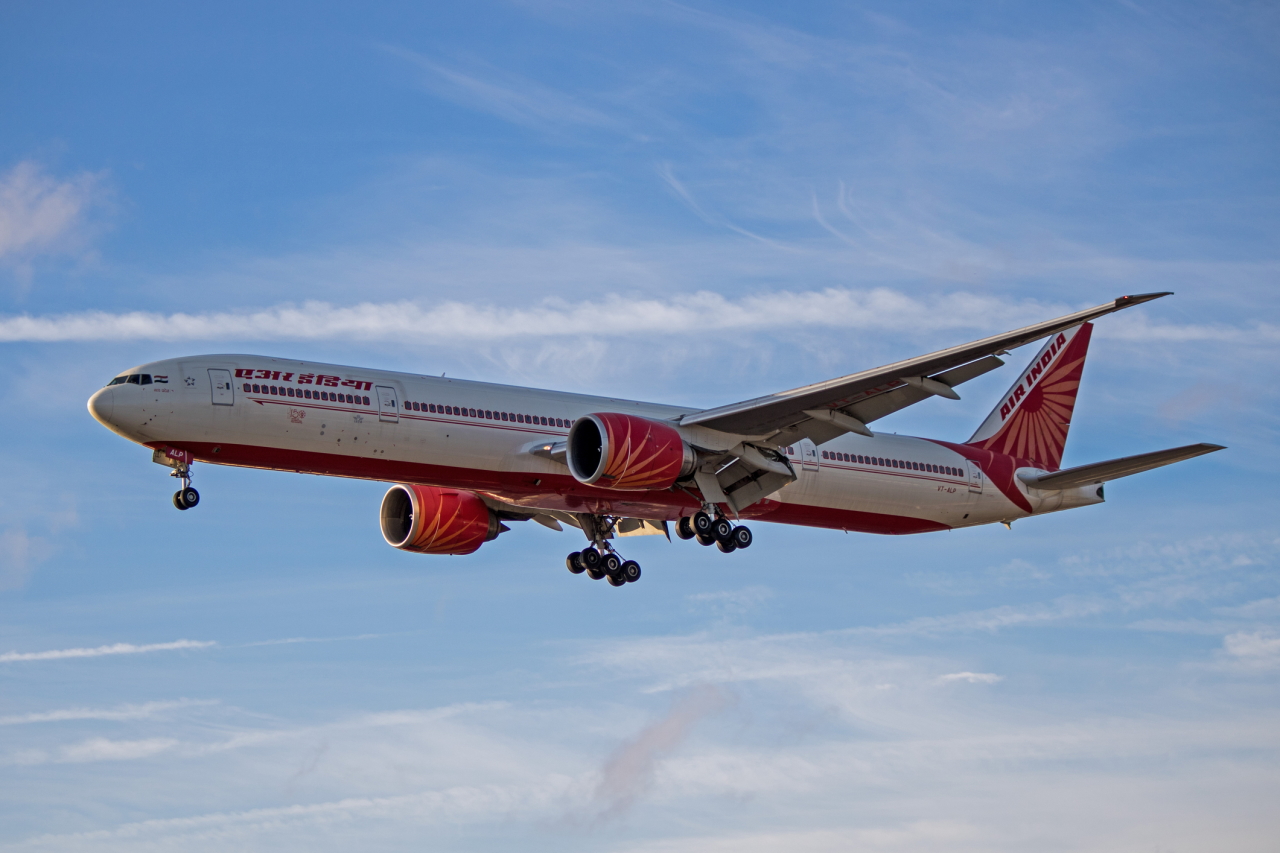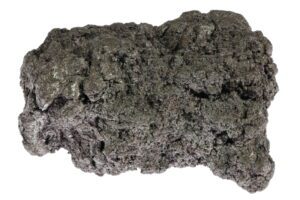
This article is a compilation of recent news stories, press releases and company statements regarding the effects on the international titanium industry due to Russia’s invasion of Ukraine, which began on February 24. As a non-profit trade group, the International Titanium Association does not weigh in on political issues. However, the information provided here comes from the titanium and aerospace industries, industry observers and trusted news sources, all of which has a direct impact on global business conditions. Sources of information collected here are identified, along with the content that they provided.
By Michael C. Gabriele, International Titanium Association
As the war in Ukraine continues to unfold (now in its fifth week at the time of this writing), the titanium industry and major users of titanium are making moves to react to the situation. In early March, a host of news outlets—Aviation Week, The New York Times, The Wall Street Journal, Bloomberg, Reuters, and others—reported that Boeing
Co. halted titanium purchases from Russia. The Wall Street Journal, on March 7, reported that Boeing stopped purchasing Russian titanium since the invasion of Ukraine. Boeing also closed its engineering offices in Moscow and Kyiv and stopped sending spare plane parts to Russian airlines.
Citing a statement from a Boeing spokeswoman, reported by the Journal, the aerospace giant said it will focus on sourcing its titanium from the United States, Japan, China and Kazakhstan.
“Our inventory and diversity of titanium sources provide sufficient supply for airplane production, and we will continue to take the right steps to ensure long-term continuity,” the spokeswoman said. The Journal also reported that, after Russia invaded Crimea in 2014, Boeing began diversifying its titanium sources as the United States imposed Russian sanctions. Last year, according to an article posted on PRNewswire, Boeing and VSMPO-Avisma announced a Memorandum of Understanding (MOU) affirming that VSMPO would remain the largest titanium supplier for current and future Boeing commercial airplanes, reaffirming a business relationship that began in the mid-1990s. VSMPO provided titanium used on Boeing 737, 767, 787, 777 and 777X airplanes. The two companies issued a statement on the MOU at the November 2021 Dubai Airshow, held in the United Arab Emirates.
A March 1 article by the news service Reuters indicated that Russia’s VSMPO-Avisma supplies European aerospace manufacturer Airbus with about 50 percent of its annual titanium needs, while it estimated that Boeing receives about 30 percent. News reports stated that Airbus continued to weigh the situation regarding of its sourcing of titanium from Russia.
The Seattle Times, in a story posted online on Feb. 24, wrote that “engine makers for Boeing and Airbus jets are working to diversify sources of titanium away from Russia as the conflict in Ukraine threatens access to the metal needed to make critical plane equipment.” Russia’s VSMPO-Avisma is the main supplier for Safran, while Rolls-Royce Holdings gets about 20 percent its titanium from Russia.
ATI terminates Uniti venture
Pittsburgh-based Allegheny Technologies Inc., on March 9, announced the termination of Uniti LLC, its joint venture with Russian-based VSMPO-AVISMA, to market and sell a range of commercially pure titanium products. The joint venture primarily focused on selling to industrial markets such as power generation, chemical and petroleum processing, automotive, and transportation. The joint venture is expected to wind up by the end of this year.
“We appreciate our nearly 20-year collaboration and thank our partners for working with us to serve our shared customers,” said Kevin Kramer, board member of the joint venture and Chief Commercial and Marketing Officer of ATI, quoted in the announcement. ATI formed the Uniti joint venture with VSMPO in April 2003. Views from industry observers New York-based Fitch Ratings Inc., one of the “big three” credit rating agencies, registered with the U.S. Securities and Exchange Commission as a “Nationally Recognized Statistical Rating Organization,” stated that “a protracted war between Russia and Ukraine could lead to elevated production and supply chain risks that might affect aerospace original equipment manufacturer (OEM) and supplier credit profiles, especially as the industry is still recovering from the coronavirus pandemic.”
The report from Fitch, dated March 1, added that if the conflict is resolved in the short term, “then we do not expect orders or deliveries will be materially dampened. We have not changed our 2022 forecasts for US-based OEMs or suppliers, as we believe many manufacturers have taken steps to reduce supply and commodity risks for the next several months.”
Fitch went on to point out that global aerospace and defense supply chains could face constraints “due to retaliatory behavior from Russia or transportation and supply chain issues if the war persists over a prolonged period. There could be meaningful medium-term risks for the global aerospace industry if the war leads to a prolonged tightening of commodity supplies. This could limit OEMs and suppliers’ ability to meet demand. If the conflict leads to a protracted elevation in oil prices and a material slowdown in the global macroeconomic recovery, airlines’ appetite for new aircraft could be affected, particularly those with heavier exposure to international routes. Under such a scenario, wide-body aircraft production recovery would be most at-risk.”
The report cited Russia and Ukraine as being among the top global producers of titanium, “a vital input” for aerospace and defence and industrial equipment manufacturing, used in a variety of parts and applications including castings, forgings, fastening systems, extrusions and engine parts. (According to information presented at TITANIUM USA 2021, Russia’s VSMPO (in 2019) had a titanium sponge capacity and output of 44,000 metric tons, and a titanium ingot capacity of 72,000 metric tons.) Fitch indicated that many US OEMs and suppliers recently have taken steps “to build up inventory of titanium and/or to diversify and solidify sourcing channels to other nations such as Japan. These actions should help minimize risks of a titanium shortage or production bottleneck in the intermediate term. There should be a minimal negative effect on commercial aircraft production in 2022, as any near-term supply chain disruption (for titanium) is likely be isolated. However, there could be meaningful medium-term risks for the global aerospace industry if the war leads to a prolonged tightening of commodity supplies.”
A European perspective came from Argus Media, based in London, which produces price assessments and analysis of international energy and other commodity markets. A Feb. 23 report posted online—one day before Russia’s war against Ukraine began—stated that sanctions and raw material embargoes could threaten a substantial portion of the titanium sponge market. Russia’s VSMPO-Avisma is the world’s largest titanium sponge producer, with nameplate capacity of 34,000 metric tons per year, and supplies a large portion of the titanium products used by Airbus and Boeing in their aircraft hulls. “The interesting issue is that Airbus and Boeing are reliant on VSMPO. We know they have already approached competitors because of the political situation. Other sponge producers such as Japan’s Toho Titanium could be used as alternative sources for titanium products.”
Overview on titanium sponge
Regarding an overview on the global titanium sponge market, Reuters, in a March 1 news story, reported that China is the world’s top producer of titanium sponge, accounting for 57 percent of global output at 210,000 metric tons in 2021, according to U.S. Geological Survey. Japan was next at nearly 17 percent of global output, followed by Russia with nearly 13 percent of the market. Last year Kazakhstan produced 16,000 metric tons sponge and Ukraine produced 3,700 metric tons.

Reuters quoted an analyst at London-based CRU Group, which tracks global commodity markets such as metals and mining and offers consulting and analysis services, who said that China was the largest importer of titanium sponge in 2021 with more than 16,000 metric tons, up from 6,000 metric tons in 2020. The second-largest importer was the United States with about 16,000 metric tons last year, down from 19,000 metric tons in 2020. Japan is the largest exporter of titanium sponge to China and the United States, shipping 8,000 metric tons and 14,000 metric tons, respectively, in 2021. “The recovery of industries such as construction and aerospace last year led to a jump in demand for titanium products post-pandemic,” the CRU analyst said.
Aside from any short-term economic or industrial consequences, a reliable supply of titanium sponge is critical for the long-term national security interests of the United States. The US Department of Commerce’s Bureau of Industry and Security and the Office of Technology Evaluation spelled out this concern in a Nov. 29, 2019 report “The Effect of Imports of Titanium Sponge on the National Security.” The report summarized findings of an investigation conducted by the US Department of Commerce regarding Section 232 of the Trade Expansion Act of 1962.
The 2019 report stated that titanium sponge—produced domestically or sourced from other countries—is essential to the manufacturing and maintenance of US defence systems and other key business sectors such as healthcare, food and agriculture, energy and transportation. “Titanium is used in many military applications, including aircraft frames, jet and helicopter engines, satellites, ships, submarines, and ground vehicles. Titanium sponge is the intermediate product resulting from the conversion of titanium ore into a form of titanium metal that can be melted to manufacture slab or ingot, which in turn is used to produce finished titanium products. Consequently, titanium sponge production is essential to the production and sustainment of many US defence systems, and preserving this critical capability is imperative to the national security.”
About ITA
The International Titanium Association is a membership-based trade association dedicated to the titanium metal industry. Its main mission is to connect the public interested in using titanium with specialists from across the globe who may offer sales and technical assistance. For info visit https://titanium.org/

